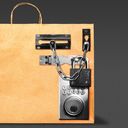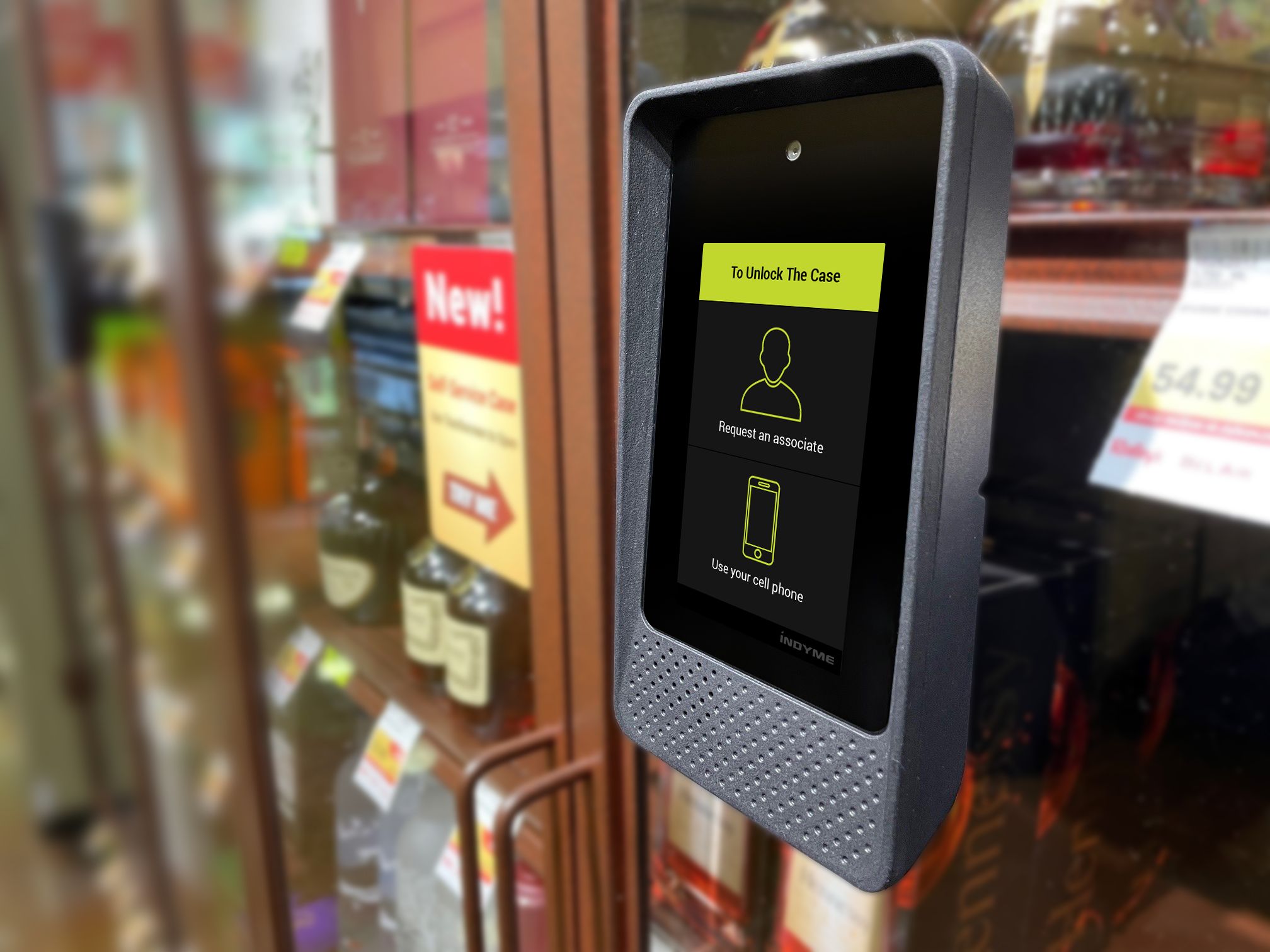Retailers pile on new tech to deter theft

Locked cases, security turnstiles, AI-equipped cameras, receipt scanners, off-duty cops, license plate recognition — retailers are piling on anti-theft technologies as shoppers grit their teeth.
Why it matters: Striking the right "convenience vs. security" balance is critical for retailers, who need to thwart shoplifting without turning off legit customers.
Driving the news: Stores are taking increasingly muscular loss-prevention measures.
- In Washington, D.C., some Giant and Safeway supermarkets are locking up items, installing security gates and checking customers' receipts before they leave.
- New York City drugstores are so rife with plastic lockup cases that one crook was forced to use a blowtorch to blast one open, making off with $448 in skin care products.
- Under Lowe's' "Project Unlock," you can't use your new power drill unless it's been activated at the register.
Friction point: Such anti-theft efforts can deter legit consumers.
- Retailers "know that locking up items does impact their sales," says David Johnston, vice president of asset protection and retail operations at the National Retail Federation.
- "They spend millions of dollars on displays and creating the shopping experience," he notes. Locking up merchandise is "something they really don't want to do."
- Retailers are "looking at various technologies that allow them the freedom of a positive shopping experience, with the control of inventory," Johnston says.
Case in point: "Anti-sweeping" shelves use rails, tracks or sensors to keep people from grabbing lots of items at once.
- New AI cameras use "loitering analytics" and face-matching tech designed to spot known offenders.
- RFID systems — which mark each item with a tiny tag about the size of a piece of glitter — are increasingly used to track stolen merchandise.
- Audio detection alerts store managers to the sound of gunshots or breaking glass.
- "Pushout prevention" systems lock shopping carts before they exit a store.
- License plate recognition cameras monitor store parking lots.
Zoom in: Some stores are deploying the Freedom Case, which shoppers can unlock by sharing their phone number or using the store's loyalty app.
- "You're making this value exchange," Joe Budano, CEO of Freedom Case maker Indyme, tells Axios.
- "You're trading some form of personal information" for the ability to take a product yourself — which 85% of people do, the company says.

Between the lines: Today's security camera technology, meanwhile, is "much more searchable" with "much greater resolution," says Read Hayes, director of the Loss Prevention Research Council, which lab-tests anti-theft products.
- AI obviates the need to watch eight hours of video to find a thief — it can flag suspicious behavior in real time, Hayes tells Axios.
Yes, but: Stores must be mindful of privacy concerns and false accusations.
- Case in point: Rite Aid was recently barred from using facial recognition for five years after the Federal Trade Commission found that its system erroneously flagged people of color as shoplifters.
Reality check: A tiny number of shoplifters account for the vast majority of the crimes — but everyone suffers when shampoo and toothpaste gets locked behind barriers.
- Store clerks suffer very real trauma from violence and threats against them.
Threat level: Some consumers complain that physical stores are putting themselves out of business with heavy-handed security.
- On the other hand, there's sympathy and understanding for store owners, according to surveys from the Loss Prevention Research Council.
- "I think people are saying, 'You know, these poor places are losing so much — they've got to protect themselves," says Hayes, who's also a criminologist at the University of Florida.
What's next: Stores of the future could develop a TSA-type system in which trusted shoppers gain easier access to shelves, dressing rooms, self-checkout and more, Budano says.
- Verified shoppers — who might one day be recognized by AI cameras — could get a green light to use the store freely.
The bottom line: The latest anti-theft technologies deter thieves and catch criminals, experts say — so expect to see more of them.